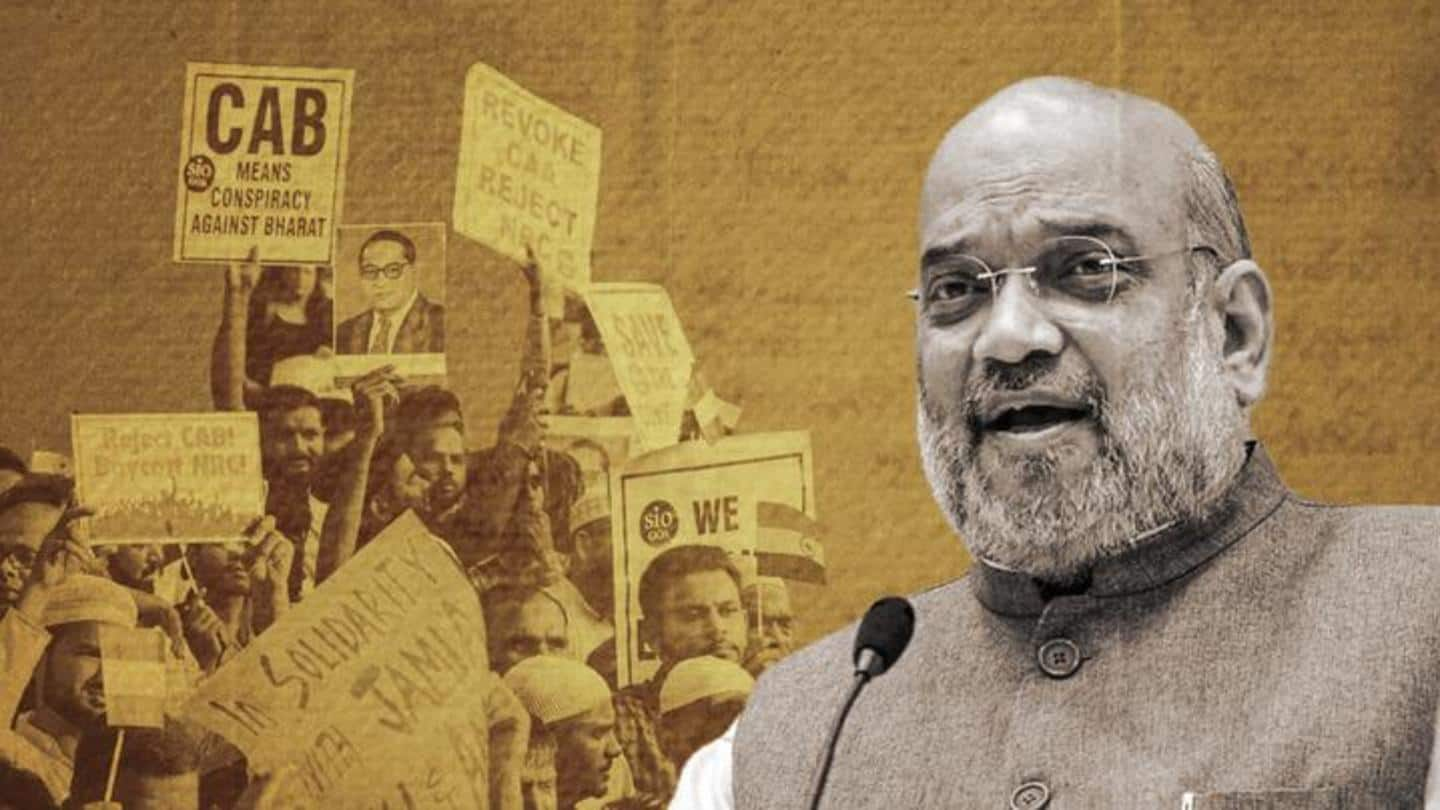
Will implement CAA after COVID-19 booster vaccination drive: Amit Shah
What's the story
Union Home Minister Amit Shah on Tuesday said the government will implement the Citizenship (Amendment) Act of 2019, or the CAA, after the COVID-19 booster vaccination drive is over, The Indian Express reported. The statement came after Shah's meeting with West Bengal BJP leader Suvendu Adhikari. Notably, the CAA seeks to provide Indian citizenship to persecuted minorities (non-Muslims) from Pakistan, Bangladesh, and Afghanistan.
Context
Why does this story matter?
The CAA aims to grant expedited citizenship to members of six non-Muslim undocumented minorities of Pakistan, Bangladesh, and Afghanistan. The legislation has been mired in controversy ever since it was cleared by Parliament on December 11, 2019, even leading to pan-India protests. The government is yet to frame rules for the CAA and has sought an extension five times for the same.
Statement
'CAA to come after third dose drive is over'
During a meeting with the West Bengal Assembly's Leader of Opposition, Adhikari, Shah reportedly assured him that CAA will be implemented after the COVID-19 booster vaccination program. He conveyed the Centre will initiate the long-pending CAA implementation once the "third dose (drive) of COVID-19 vaccination is completed," reported The Indian Express. They also discussed the functioning of BJP's WB unit and internal organizational issues.
Twitter Post
Shah holds 45-minute meeting with Adhikari
It's an honour for me to meet Hon'ble Union Home Minister Shri @AmitShah Ji for 45 minutes at his office in Parliament.
— Suvendu Adhikari • শুভেন্দু অধিকারী (@SuvenduWB) August 2, 2022
I briefed him how WB Govt is completely mired in corrupt activities such as the Teachers recruitment scam.
Also requested him to implement CAA at the earliest. pic.twitter.com/DLLdOpfSa3
Vaccination
Booster dose drive expected to end mid-2023
The central government launched the COVID-19 precautionary dose drive for all adults in April 2022. The drive is expected to draw a close within nine months, that is, by the middle of 2023. To recall, Shah made a similar claim on CAA implementation during a rally in WB's Jalpaiguri in May, his first visit to the state after the BJP's 2021 Assembly election loss.
Extension
MHA sought fifth extension in May
Shah's statement comes months after the Union Ministry of Home Affairs (MHA) requested an extension of six months to draft the CAA rules. The MHA had presented its request before parliamentary committees in April, the fifth time since the bill was cleared. In 2020, the Union Home Ministry said the process was getting delayed due to the COVID-19 pandemic.
Details
What are the provisions in CAA?
Members of six minority religious communities—Hindu, Sikh, Buddhist, Jain, Parsi, and Christian—from Pakistan, Afghanistan, and Bangladesh who entered India before December 31, 2014, are eligible for Indian citizenship under the CAA. The process for citizenship will be entirely online, the MHA had earlier said. The law exempts members of these six groups from prosecution under the Foreigners Act, 1946, and the Passport Act, 1920.
Protests
Anti-CAA movement in 2019-20
Between December 2019 and March 2020, the CAA provoked violent demonstrations and rioting across India, killing 83 people in Assam, Delhi, Karnataka, Meghalaya, and Uttar Pradesh. Residents complained that allowing visitors from other countries would jeopardize the delicate demography in border areas. The anti-CAA demonstrations shook Delhi in February 2020 as a days-long communal riot killed over 50 people and injured hundreds more.